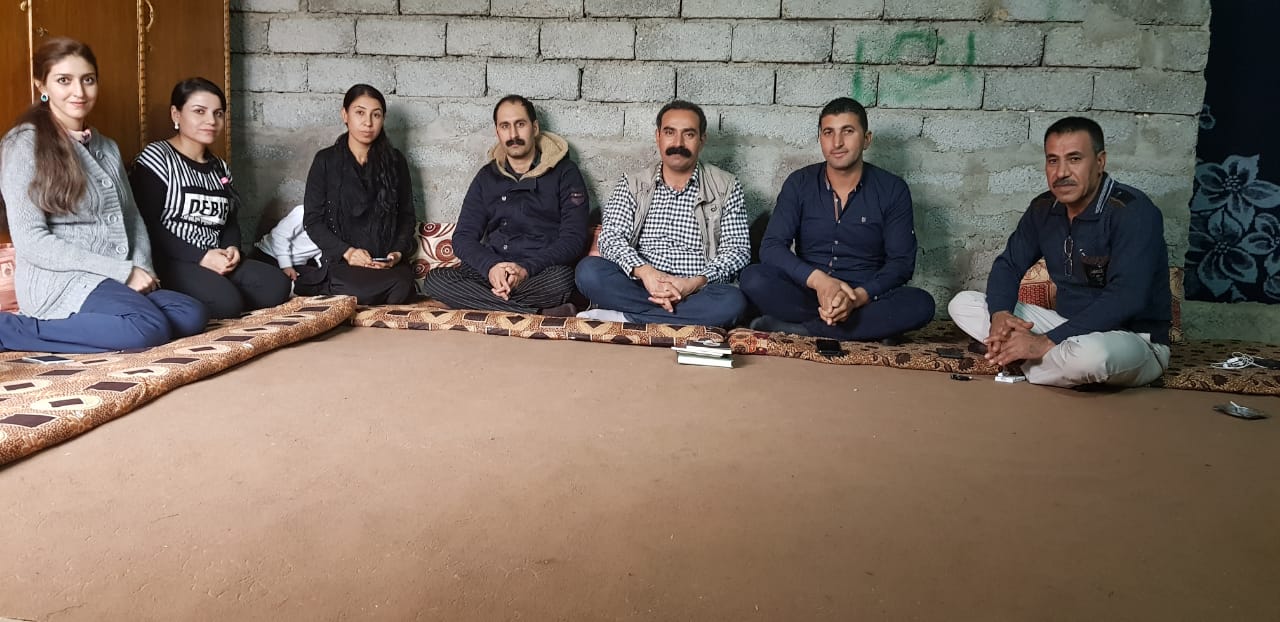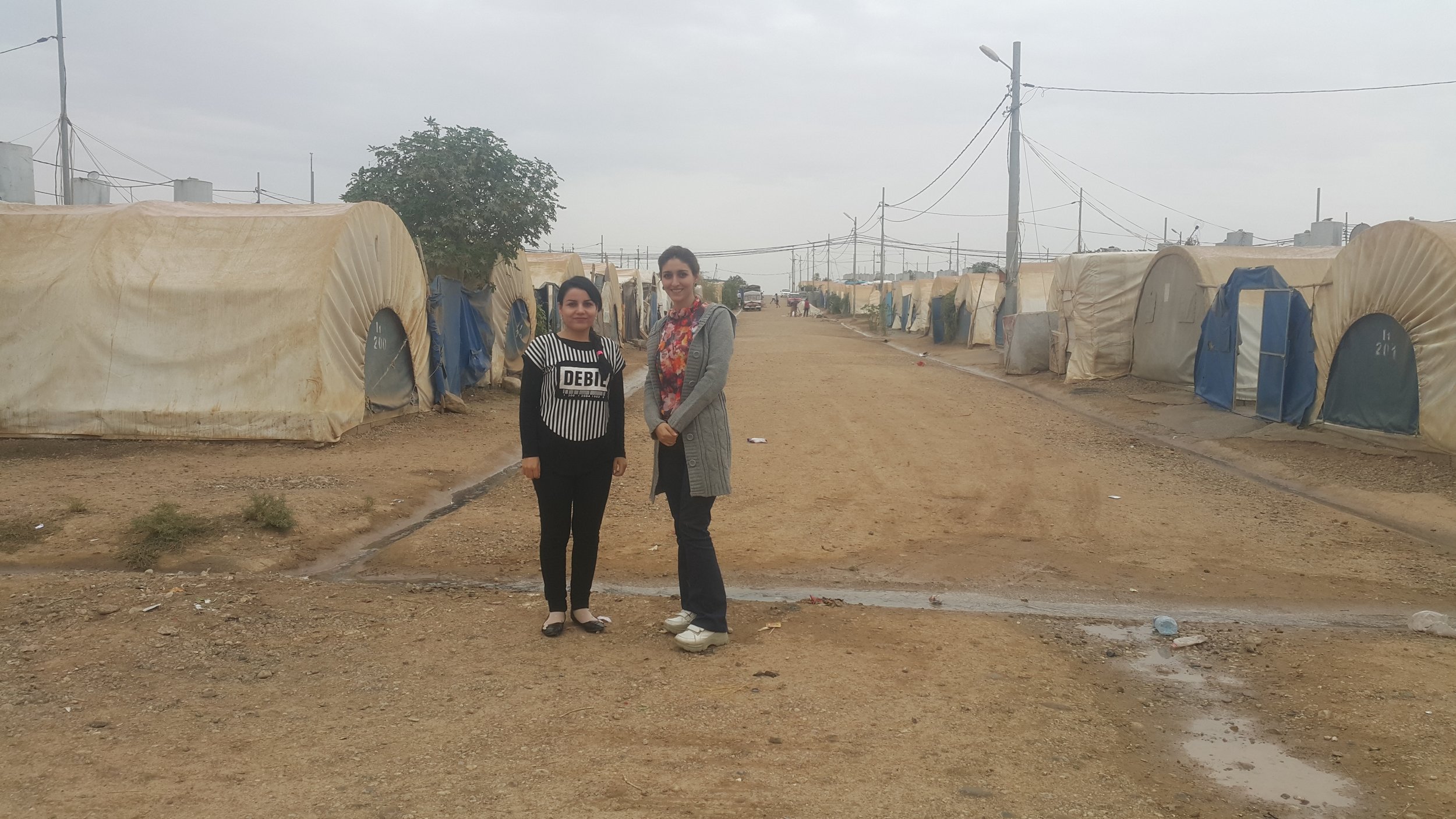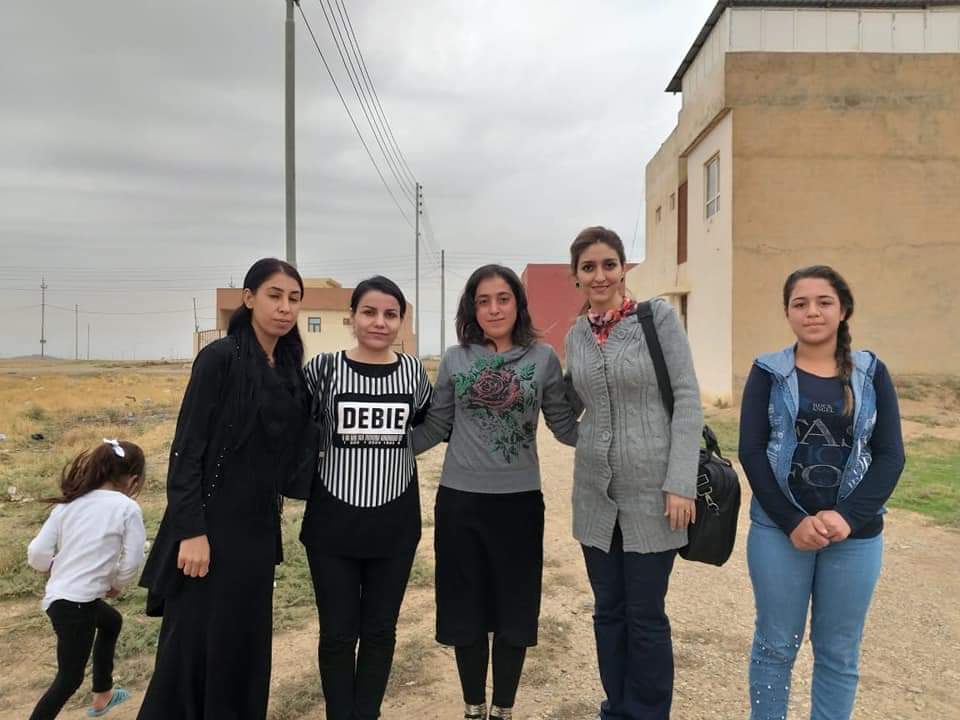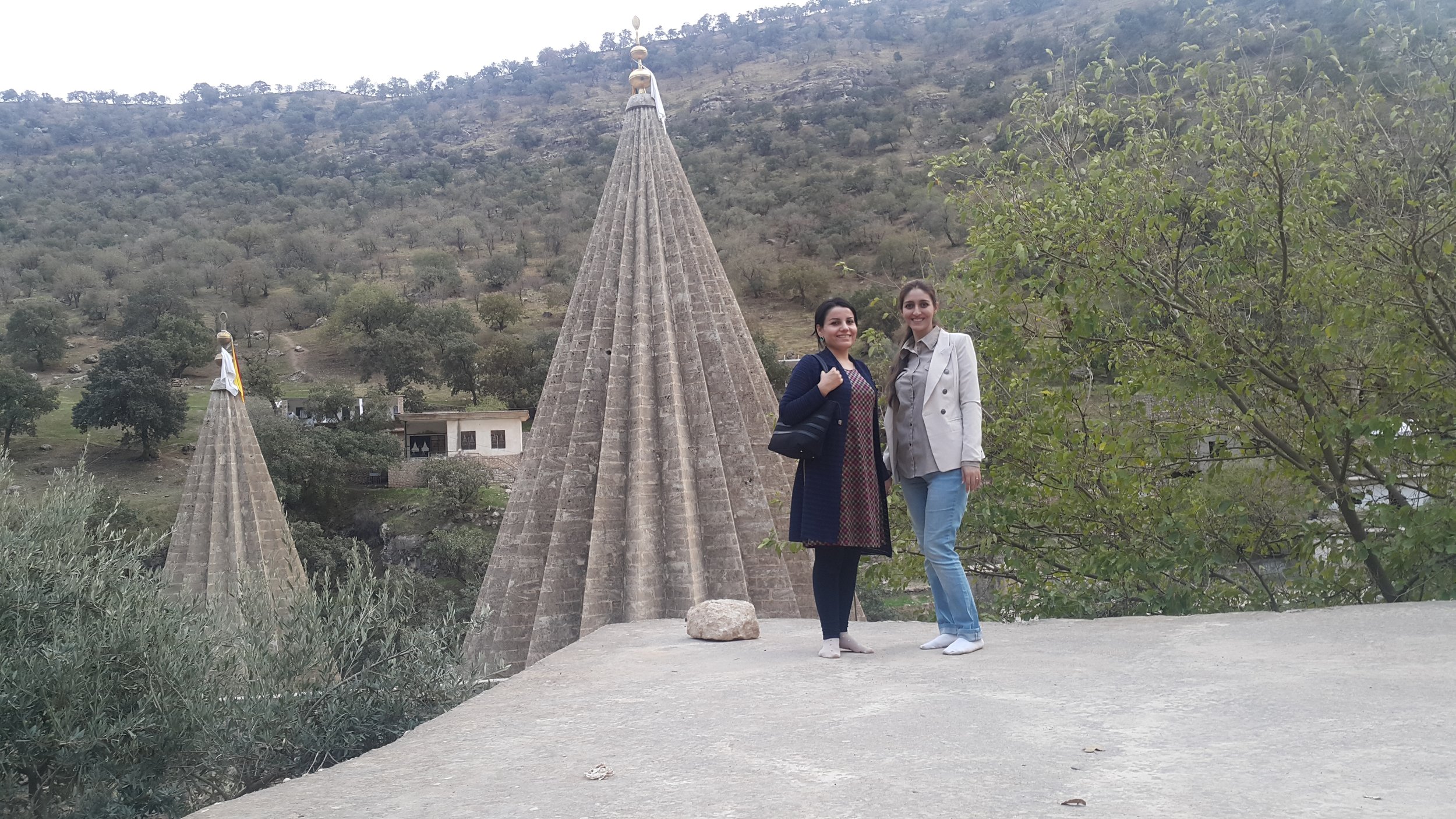Research Team Members Visit Camp for Internally Displaced Persons in Northern Iraq
/University of Garmian researchers, Dr. Pegah Seidi and Nazdar Qudrat, visited a camp for internally displaced persons in Duhok, Iraq as part of an interdisciplinary project to understand gaps in care for mothers and children displaced by conflict.
In November of 2018, researchers from University of Garmian visited a camp in Northern Iraq for Internally Displaced Persons (IDPs). This visit is part of a multi-disciplinary research project supported a team from AA&D and UNC Chapel Hill to understand the gaps in medical and mental health care delivery for mothers and children displaced by conflict. Ultimately, the goal is not just to understand these needs, but to act upon them in a spirit of solidarity. The information gathered through this initial work will be used to inform future support for people in IDP camps, and similar post-conflict settings.
Currently, this research project seeks to understand mental health challenges and improve services for mothers and children of the Yazidi community who have been displaced by conflict in the country. Yazidis are an ethno-religious minority who have suffered extensively in past and ongoing conflicts in Iraq.
More than one tenth of Iraq’s population, or more than four million people, is estimated to be internally displaced, and more than 7.5 million Iraqis are estimated to experience profound mental trauma as a result of the ongoing conflicts in the country. Many of these affected communities have faced historic persecution as ethnic or religious minorities in Iraq, and the ongoing physical and mental health challenges as a result of violence and persecution are particularly acute.
The team, which includes Dr. Dilshad Jaff and Dr. Aunchalee Palmquist at UNC Chapel Hill, Dr. Pegah Seidi and Nazdar Qudrat of the University of Garmian, and Tom Nicholson, Michael Wilson, and Amanda Brumwell of AA&D, has been working together since spring of 2018 to understand mental health challenges, as well as the gaps in care to address these, among IDPs in complex emergency settings.
Dr. Seidi and Ms. Qudrat visited a camp of nearly 4,000 IDPs in Duhok, a city located in Iraqi Kurdistan where they conducted interviews with mothers of infants about their views on access to perinatal and postnatal medical care, mental health services, and gaps in the delivery of these important healthcare services. The University of Garmian-based research team also administered surveys to understand the level of trauma and depression among displaced mothers.
The goal of this project is to gather evidence of the ongoing but overlooked trauma and mental health concerns among this population while prioritizing maternal and infant health. Researchers hope that the findings from this project will translate to more inclusive health delivery pathways that integrate maternal and child health with mental health for severely traumatized mothers and infants. The group plans to continue data collection and analysis throughout 2019, visiting several camps across the region during this time. Team members are optimistic that the findings from this research can inform meaningful changes to the delivery of care for displaced mothers and children in complex emergency settings.





